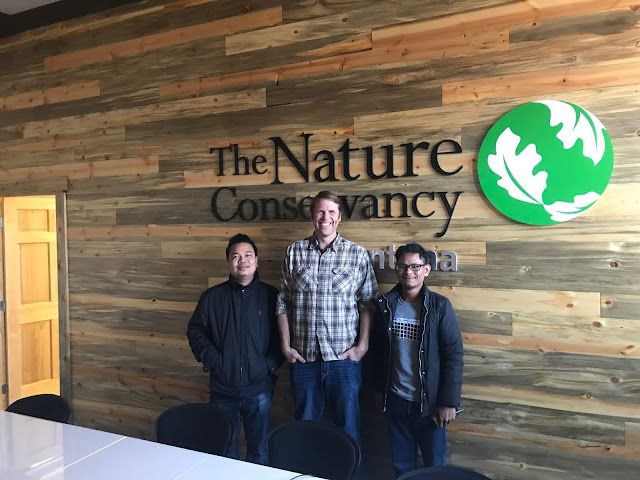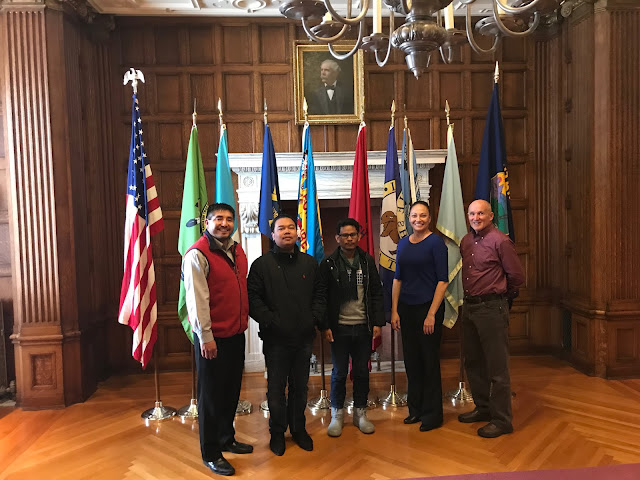It's been over two weeks since we arrived in Missoula, Montana, but everything seems to be moving quickly. The weather changes, becoming warmer and sunnier. The maple leaves turn yellow and fall to the ground seasonally. The day of my settling with the host family arrived. It was also my first day at the Montana Environmental Information Center (MEIC) in Helena. Derf Johnson, Director of the Clean Water Program and Staff Attorney, is my host coordinator. Lailone, a Myanmar co-fellow, and I were cordially greeted and introduced to various MEIC staff members. We were provided a workspace to work in. It appears to be quite excellent.
The Montana Environmental Improvement Council (MEIC) is a non-profit environmental organization created in 1973 by Montanans concerned with protecting and restoring Montana's natural environment. MEIC is supported by nearly 5,000 members in Montana and across the country, both financially and via their activities. MEIC has performed critical roles in advocating in the State Legislature on behalf of an active advocate. Since 1974, its function has been to lobby the Montana State Legislature on environmental matters. MEIC also serves as a Government Agency Watchdog, grassroots advocate, and public educator, as well as a promoter and protector of the Constitution, and has effectively influenced state and federal agencies for more than three decades.
Derf took us on an exploration of Helena, Montana's capital city, and to view renowned landmarks, particularly the Capitol. I was astounded to learn that the Capitol is open to the public for viewing and learning about its history. According to Derf, the Capitol is where Senators and Members of congress gather, as well as where the state's laws are passed. Surprisingly, I went to the Department of Environmental Quality to file a complaint against a former executive of the bankrupt firm that planned to develop the Rock Creek and Montanore Mines in violation of state law.
Derf took me to meet with C. Mark Aagenes, director of External Affairs at the Nature Conservancy, for my first appointment in Helena. The Nature Conservancy (TNC) is the world's leading conservation organization, striving to safeguard biologically significant lands and rivers for both nature and people. Mark has told us a lot about his conservation work in Montana. He stated that in Montana and throughout the West, the demand for clean, fresh water was exceeding the supply, and Montanans understood that water is a valuable resource for their survival. He also displayed a plethora of maps depicting TNC's project locations. During this debate, I learned a lot about the roles of non-governmental organizations (NGOs) in working with people and governments, specifically concerning private donations for conservation work. At the time, I also highlighted and raised concerns about economic land concessions negatively impacting the livelihoods of Cambodia's indigenous peoples, as well as the difficulties encountered while working in Cambodia.


